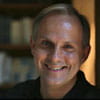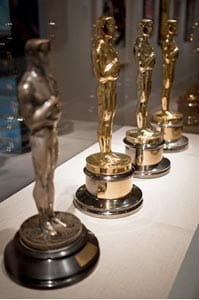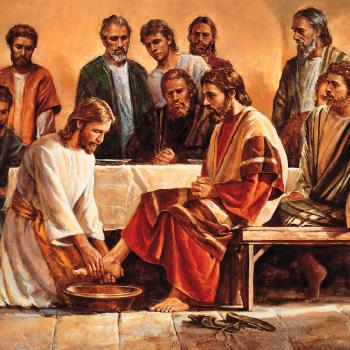 It's Oscar season again, and people are talking about their favorite films, and what those films tell us about ourselves. Cultural critics like me remind us that movies, like other works of popular culture, appeal both because of their own intrinsic artistry and because they resonate with the zeitgeist, the spirit of the times. That is, popular things are popular for a reason. Sometimes the times bring certain works to the forefront; for instance, at the 2008 Oscars, when the movies on offer included No Country for Old Men, Michael Clayton, There Will Be Blood, and The Dark Knight, host Jon Stewart was one of many commentators who theorized that dark times breed dark movie hits. His question "Does this town need a hug?" was as apt a recognition as any.
It's Oscar season again, and people are talking about their favorite films, and what those films tell us about ourselves. Cultural critics like me remind us that movies, like other works of popular culture, appeal both because of their own intrinsic artistry and because they resonate with the zeitgeist, the spirit of the times. That is, popular things are popular for a reason. Sometimes the times bring certain works to the forefront; for instance, at the 2008 Oscars, when the movies on offer included No Country for Old Men, Michael Clayton, There Will Be Blood, and The Dark Knight, host Jon Stewart was one of many commentators who theorized that dark times breed dark movie hits. His question "Does this town need a hug?" was as apt a recognition as any.
 This year at the 2011 Oscars, it's harder to pin down a group vibe amongst the Best Picture nominees. The world has changed since 2008, so while there are still grim, challenging, or disturbing films in the mix—Black Swan or 127 Hours could keep you up at night—we also find Oscar-friendlier fare like The King's Speech and The Social Network nominated for Best Picture. The list also includes the computer-animated sequel Toy Story III, and one big smart effects-laden blockbuster, Inception, written and directed of course by Christopher Nolan, who seems to have cornered the movie market on great big films (or, if you prefer, big great films).
This year at the 2011 Oscars, it's harder to pin down a group vibe amongst the Best Picture nominees. The world has changed since 2008, so while there are still grim, challenging, or disturbing films in the mix—Black Swan or 127 Hours could keep you up at night—we also find Oscar-friendlier fare like The King's Speech and The Social Network nominated for Best Picture. The list also includes the computer-animated sequel Toy Story III, and one big smart effects-laden blockbuster, Inception, written and directed of course by Christopher Nolan, who seems to have cornered the movie market on great big films (or, if you prefer, big great films).
With ten pictures now nominated in the Best category, it is more difficult to find a connecting thread between the films, but perhaps that thread might be community: the need for it, the desire for it, the condition of being alone, the condition of being surrounded by people—and alone. We need people, whether we know it or not, to thrive and become the people we are called to be. Without community we suffer, so let's explore how that theme is played out in some of this year's nominees.
Technology simultaneously connects us and separates us. That's the irony at the heart of The Social Network, the fictionalized story of Facebook founder Mark Zuckerberg (Jesse Eisenberg, playing with brilliance a character Aaron Sorkin's screenplay describes as someone whose unassuming manner masks "a very complicated and dangerous anger"), who hoped that bringing the social experience of college online would bring him to the attention of people who mattered, an influential community who could grant him a better life. Directed by David Fincher and with that luminescent script by Sorkin, The Social Network is a rags-to-riches success story that follows a social misfit who plans to connect people through Facebook—but with whom nobody ultimately wants to connect. The film is filled with powerful recognitions of this, from the tagline that people don't like Zuckerberg not because he's a computer geek but because he's an a**hole, to the heartbreaking and funny "Your best friend is suing you for six hundred million dollars," to the closing scene where Zuckerberg requests that an ex-girlfriend friend him on his own invention, Facebook, and waits impatiently for a "friending" that will never come.
Is this what community looks like in the 21st century? Yes and no. The Social Network is a cautionary tale that we can easily lose sight of each other and what matters and be left alone with our machines. But it also reminds us that we build community through our actions to each other—and destroy it in the same way. An IGN review gets to the core of things: if you knew the film's versions of Zuckerberg and these other folks in real life, you'd probably block them on Facebook.
The same might be true of the misfits and misanthropes of True Grit, were Facebook an option in their case. The Coen Brothers' remake of the earlier film featuring John Wayne and adaptation of the William Portis novel is about grace—the possibility of it, the seeming scarcity of it, and how it is found ultimately only through the lives and love of others. When Mattie Ross's (Hailee Steinfeld) father is killed by Tom Chaney (Josh Brolin), she vows to see him brought to justice, and hires Rooster Cogburn (Jeff Bridges, in the John Wayne role) to bring him in—or kill him in the process. She and Texas Ranger LeBoeuf (Matt Damon) join Cogburn to see the quest done, and along the way they encounter blizzards, bad guys, snakes—lots of snakes!—and the challenge of human community even among those whose goals are in alignment.





